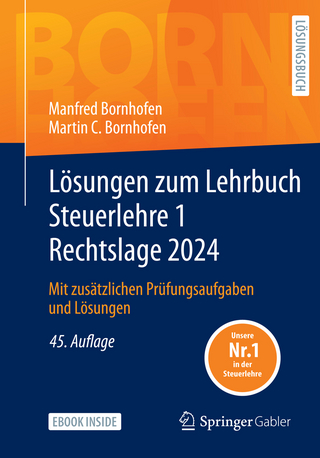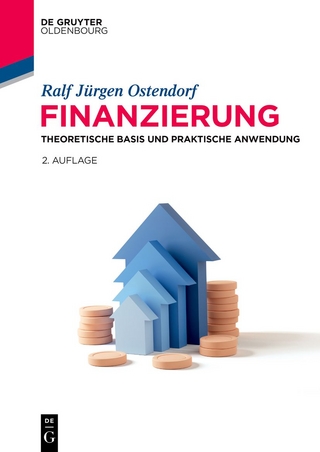
Advising Ultra-Affluent Clients and Family Offices
John Wiley & Sons Inc (Verlag)
978-0-470-28231-1 (ISBN)
A timely guide for financial professionals looking to tap into the lucrative world of the ultra-affluent The ultra affluent–defined here as those having $50 million or more in liquid assets–are an elite class who expect their financial advisors to not only preserve and grow their assets, but also help them with "soft" issues such as philanthropy and family governance. One of the biggest factors to success in this field is the relationship between the client and the advisor. In Advising Ultra-Affluent Clients and Family Offices, author and practicing investment consultant Michael Pompian provides a practical introduction to who the ultra-affluent actually are and reveals what it takes to build and maintain a solid relationship with them. Filled with in-depth insights and expert advice, this unique resource offers valuable information on issues that every advisor to the ultra-affluent must be familiar with.
MICHAEL M. POMPIAN, CFA, CFP, is the director of the Private Wealth Consulting Group for Hammond Associatesbased in St. Louis, Missouriwhich consults to over $55 billion. He works with some of the largest family offices in the United States. Prior to joining Hammond Associates, Pompian was a wealth management adviser with Merrill Lynch, a private banker with PNC Private Bank, and served on the investment staff of a family office. He earned an MBA from Tulane University and holds a BS in management from the University of New Hampshire. Pompian is a member of CFA Institute and the New York Society of Securities Analysts. He is also the author of Behavioral Finance and Wealth Management (Wiley & Sons). Pompian is married with three sons and can be reached at mpompian@haifc.com.
Foreword xiii
Preface xv
Acknowledgments xvii
Part One Introduction to Advising Ultra-Affluent Clients and Family Offices 1
Chapter 1 Who Are the Ultra-Affluent? 3
Defining the Ultra-Affluent 5
Quantifying Ultra-Affluence Among Total Global Wealth 10
Looking to the Future 11
A World of Opportunities for Advisers 17
Chapter 2 Understanding the Mindset of the Ultra-Affluent Client 19
Why Advising the Ultra-Affluent is Different 20
What Ultra-Affluent Clients Value in an Adviser 23
Building Relationships by Asking Questions and Listening to the Answers 29
Matching Client with Adviser 32
Consultant Questionnaire 33
Conclusion 37
Chapter 3 Wealth Attitudes, Aspirations, and Investor Behavior of Ultra-Affluent Clients 39
Family Aspirations 40
Wealth Attitudes of Ultra-Affluent Clients 42
Where Psychology Meets Finance 47
Investor Biases 48
Conclusion 60
Chapter 4 Noninvestment Best Practices 61
The Challenges Associated with Wealth 61
Guidelines for Sustaining Multigenerational Wealth 63
Conclusion 71
Part Two Investment Strategies for Ultra-Affluent Clients and Family Offices 73
Chapter 5 Practices of the Best Investment Organizations 75
Differences between Endowments and Private Investors 76
Investment Committees 77
Investment Policy Statements 82
Key Considerations for Portfolio Oversight 88
Conclusion 93
Chapter 6 Asset Allocation Considerations for Ultra-Affluent Clients and Family Offices 95
What Is Asset Allocation? 96
The Importance of Assumptions in the Asset Allocation Selection Process 97
The Importance of Asset Allocation 99
Considerations in Asset Allocation for Individual Investors 100
Chapter 7 Domestic and International Equity 111
Introduction to U.S. and International Equity Securities 112
The Five-Step Equity Strategy Process 115
Chapter 8 Domestic and International Bonds 135
Introduction to Bonds 137
Descriptions of Bond Asset Classes 141
Chapter 9 Private Equity 159
What Is Private Equity and How Does It Work? 162
Three Primary Types of Private Equity Investments 166
Creating a Customized Private Equity Program 172
Chapter 10 Hedge Funds 179
What Is a Hedge Fund? 180
Hedge Fund Investing by UACs and Family Offices 185
A History of Hedge Funds 187
The Legal Environment of Hedge Funds 189
Hedge Fund Strategies 191
Manager Selection 202
Chapter 11 Real Assets 203
The Portfolio Benefits of Real Assets 204
Real Estate: A Long-Term Inflation Hedge 205
Natural Resources 210
Part Three Multigenerational Considerations for Ultra-Affluent Clients and Family Offices 223
Chapter 12 Selecting an Adviser 225
Trust: The Key Ingredient 226
How UACs Select an Adviser 228
Questions for Prospective Advisers 234
Conclusion 237
Chapter 13 Selecting a Custodian and Investment Vehicle Structure 239
Custodial Services 239
Investment Vehicle Structure 250
Conclusion 257
Chapter 14 Considerations for Creating a Family Office 259
What is a Family Office? 261
Challenges of Wealth 262
Practical Reasons to Create a Family Office 264
Challenges of Running a Family Office 265
Services Provided by a Family Office 267
Administrative Considerations for Establishing a Family Office 268
Considerations for Establishing a Private Trust Company 274
Conclusion 277
Chapter 15 Wealth Transfer Planning 279
Estate Planning Basics 282
Conclusion 295
Part Four Special Topics for Ultra-Affluent Clients and Family Offices 297
Chapter 16 Concentrated Equity Risk Management 299
What Constitutes a Concentrated Equity Position? 300
Concentrated Stock Risk Minimization Strategies 304
Conclusion 315
Chapter 17 Family Governance 317
Generational Division 318
Family Governance: An Essential Part of Successful Wealth Transfer 319
The Incredible Family 320
Policies 326
Stages of Development 327
Conclusion 328
Chapter 18 Risk Management and Asset Protection 331
Family Office Risk Management 332
Individual Family Member Risk Management 337
Legal Asset Protection 341
Conclusion 344
Chapter 19 Philanthropy 345
Philanthropic Strategy Development through Asking Questions 347
Mission Statement 348
Implementation of Philanthropic Strategy 349
Philanthropic Investing 352
Best Practices of Giving Large Gifts to Colleges and Universities 355
Appendix: The Next Generation: Redefining the Philanthropic Landscape 358
Chapter 20 Multigenerational Asset Allocation Strategies 367
Different Asset Allocations for Different Generations 369
Single Allocation for an Entire Family 370
Customized Asset Allocation by Generation or Family Unit 371
Asset Allocation Targeting 374
The Behavioral Finance Approach to Asset Allocation 374
Conclusion 375
Notes 377
Index 387
| Reihe/Serie | Wiley Finance |
|---|---|
| Zusatzinfo | Charts: 79 B&W, 0 Color; Tables: 46 B&W, 0 Color |
| Verlagsort | New York |
| Sprache | englisch |
| Maße | 160 x 236 mm |
| Gewicht | 626 g |
| Themenwelt | Wirtschaft ► Betriebswirtschaft / Management ► Finanzierung |
| Wirtschaft ► Volkswirtschaftslehre ► Finanzwissenschaft | |
| ISBN-10 | 0-470-28231-2 / 0470282312 |
| ISBN-13 | 978-0-470-28231-1 / 9780470282311 |
| Zustand | Neuware |
| Haben Sie eine Frage zum Produkt? |
aus dem Bereich


